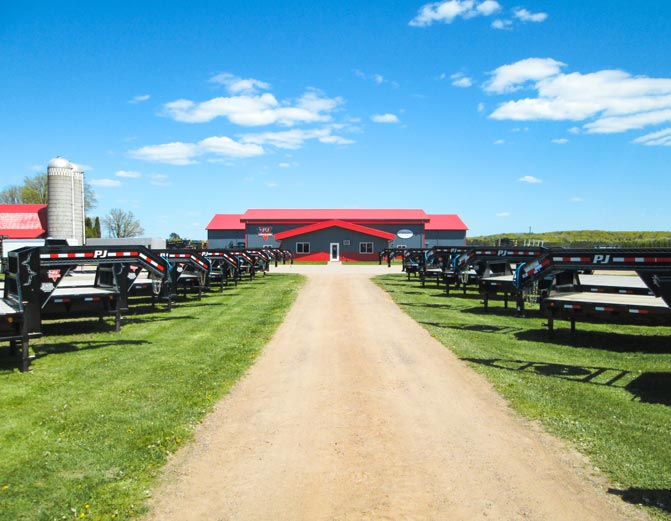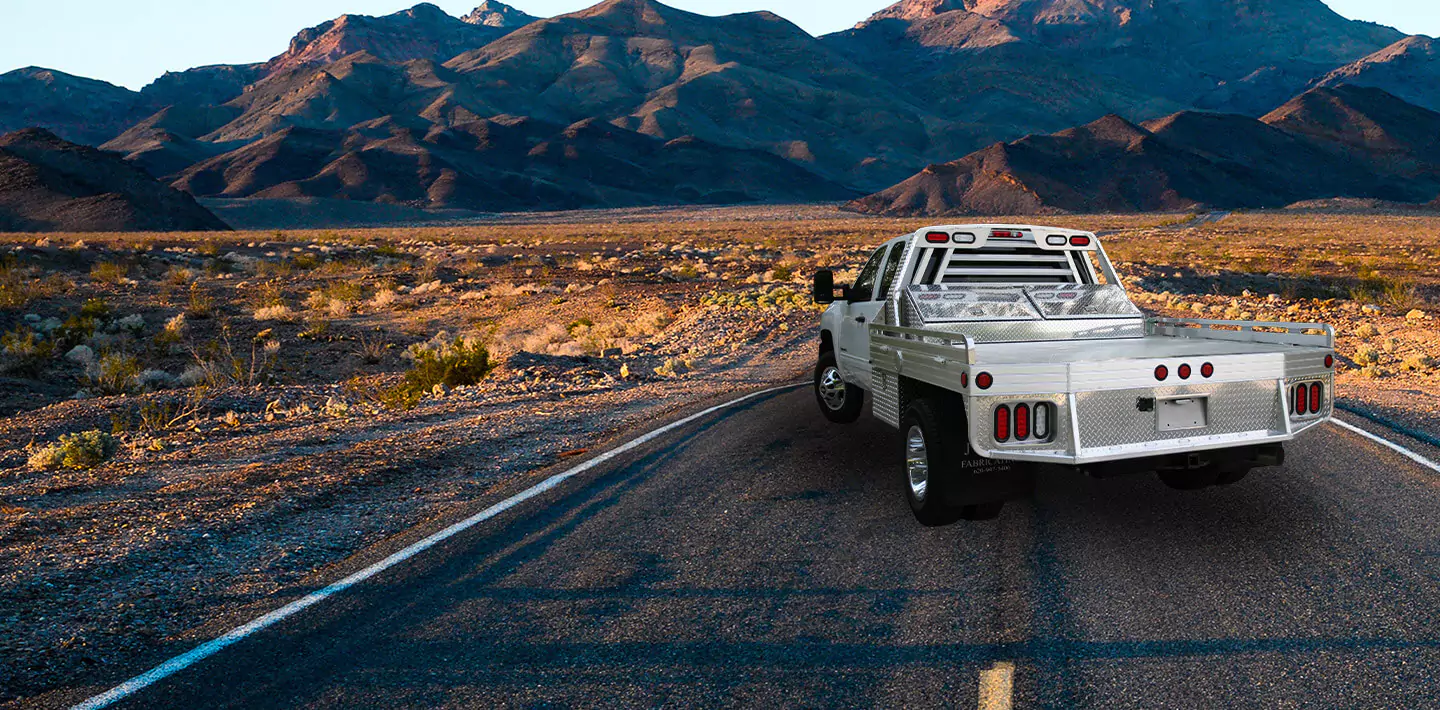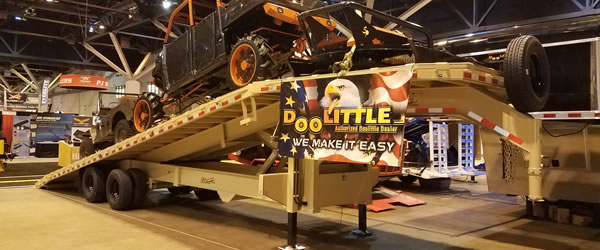To become a trailer dealer, research local regulations, obtain a business license, establish partnerships with suppliers, and secure a location for your dealership. As a trailer dealer, you’ll need to familiarize yourself with different types of trailers, understand customer needs, and optimize your marketing strategies to attract potential buyers.
Becoming a trailer dealer involves various steps that require thorough planning and adherence to legal and industry regulations. By following a structured approach that includes obtaining a business license, establishing supplier partnerships, and securing a suitable location, individuals can embark on a successful journey in the trailer dealership business.
Additionally, understanding customer needs, different types of trailers, and effective marketing approaches are essential for long-term success in this industry. Aspiring trailer dealers should also consider their local market dynamics and potential competitors while formulating a strategic business plan.
Education and Training
Education and training play a crucial role in becoming a successful trailer dealer. The trailer industry is diverse and constantly evolving, so it’s essential to have the necessary knowledge and skills to thrive in this competitive field. In this section, we’ll explore the key areas of education and training that can help you become a trailer dealer.
Industry Knowledge
Gaining industry knowledge is vital for a trailer dealer as it allows you to understand the market dynamics and keep up with the latest trends and regulations. Here are a few ways you can develop your industry knowledge:
- Research: Stay updated with industry publications, websites, and forums to learn about new trailer models, innovations, and changes in regulations.
- Networking: Attend trade shows, conferences, and industry events to connect with other trailer dealers, manufacturers, and suppliers. Building relationships within the industry can provide valuable insights and opportunities.
- Training programs: Consider enrolling in specialized training programs or courses offered by industry associations or educational institutions. These programs can cover topics like trailer manufacturing, maintenance, and sales techniques.
Business Administration Skills
In addition to industry knowledge, having strong business administration skills is essential for running a successful trailer dealership. Here are key areas where you can focus on developing your skills:
- Financial Management: Learn how to manage finances, create budgets, and analyze financial statements. Understanding key financial concepts will help in making informed decisions and maximizing profitability.
- Sales and Marketing: Develop effective sales techniques and marketing strategies to attract potential customers and promote your trailer dealership. This includes understanding your target market, conducting market research, and utilizing digital marketing channels.
- Inventory Management: Learn how to effectively manage your trailer inventory, ensuring you have the right products in stock, and optimizing storage space. Implementing inventory tracking systems can help streamline operations and minimize losses.
By combining industry knowledge with strong business administration skills, you’ll be better equipped to succeed as a trailer dealer. It’s important to continuously update your skills and stay informed about industry developments to stay ahead of the competition.

Credit: pjtrailers.com
Legal Requirements
Starting a career as a trailer dealer involves adhering to specific legal requirements. It is crucial to understand the necessary business licenses, permits, and registrations to operate legally and successfully in this industry.
Business Licenses
Obtaining the right business licenses is the first step towards becoming a professional trailer dealer. Make sure to check with local authorities or a business license service for the specific licenses required in your area.
Permits and Registrations
Securing the appropriate permits and registrations is essential to operate as a trailer dealer. This may include dealer plates, transportation permits, and tax registrations to comply with state regulations.
Also Read: How to Become a Bail Bondsman in Sc
Finding Suppliers
Research and Networking
Start by conducting thorough online research to identify potential suppliers.
Join industry groups and forums to network with other trailer dealers for supplier recommendations.
- Attend trade shows to connect with various suppliers in the market.
- Utilize social media platforms to engage with potential suppliers.
Manufacturer Relations
Establish strong relationships with reputable manufacturers for consistent supply.
- Communicate clearly about your needs and expectations with manufacturers.
- Ensure open channels of communication to address any issues promptly.

Credit: www.hillsboroindustries.com
See Also: How to Become a Face Model
Setting up Your Dealership
Once you’ve made the decision to become a trailer dealer, it’s time to set up your dealership. This involves carefully considering your location and facilities, as well as managing your inventory effectively. By following these steps, you can ensure a successful start to your trailer dealership.
Location and Facilities
Choosing the right location for your dealership is crucial to attracting customers and ensuring easy access. Consider setting up your dealership in an area with high traffic and visibility. Ideally, it should be located near major highways or in an industrial area where potential customers are likely to be. Additionally, ensure that your dealership has ample parking space for customers, as well as an easily accessible entrance.
When it comes to the facilities, prioritize creating a welcoming environment for your customers. Make sure your dealership has a clean and well-maintained showroom where customers can browse through your inventory. A comfortable waiting area along with clean restrooms can also go a long way in providing a positive experience for your customers.
Inventory Management
Efficient inventory management is essential for the success of your trailer dealership. It involves keeping track of your stock, ensuring you have the right trailers in stock, and maintaining optimal levels of inventory. Implementing a reliable inventory management system or software can help streamline this process.
Here are some key aspects to consider when it comes to inventory management:
- Regularly update your inventory: Keep track of the trailers you have in stock and update your inventory records regularly to ensure accuracy.
- Diversify your inventory: Offer a wide range of trailer types, models, and sizes to cater to different customer needs. This will help attract a larger customer base.
- Strategically manage your stock levels: Ensure you have enough trailers in stock to meet customer demand without overstocking, which can tie up capital and result in storage issues. Maintain a balance that allows for quick turnaround.
- Monitor market trends: Stay updated with the latest industry trends and customer preferences. This will help you make informed decisions when it comes to purchasing new inventory.
By effectively managing your inventory, you can optimize sales and customer satisfaction while minimizing costs and wastage.
Marketing and Sales
When starting a trailer dealership, developing a solid marketing and sales strategy is paramount to attract potential buyers and drive business growth. Understanding the needs of your target audience, devising effective promotional tactics, and showcasing the value of your trailers are key components to excel in this industry.
Targeting Potential Buyers
Identifying the right audience for your trailers is crucial to directing your marketing efforts effectively. Conduct market research to understand the demographics and preferences of potential buyers.
Promotional Strategies
Diversify your promotional strategies to reach a wider audience. Leverage digital marketing techniques such as search engine optimization (SEO), social media advertising, and email campaigns to maximize brand visibility.
Customer Service and Support
Customer service and support are crucial aspects of running a successful trailer dealership. By providing excellent support to customers, you can build a loyal client base and enhance your reputation in the industry.
Warranty Services
Offering reliable warranty services is essential to assure customers that they are investing in quality trailers. Clearly outline the terms and conditions of the warranty, including the duration and coverage. Promptly addressing warranty claims will instill trust and confidence in your dealership.
After-sales Assistance
Providing comprehensive after-sales assistance can set your dealership apart from the competition. Offer customers assistance with trailer maintenance, repairs, and upgrades. Maintaining open communication and being responsive to their inquiries and concerns will foster a positive relationship.
Industry Regulations
To become a trailer dealer, one must understand and adhere to industry regulations governing sales and licensing requirements. Compliance with these rules is crucial for a successful trailer dealership business. Familiarizing oneself with licensing procedures and legal obligations is essential in establishing a reputable dealership in the industry.
Compliance with Safety Standards
When it comes to becoming a trailer dealer, there are several industry regulations that you need to be aware of. One of the most critical aspects is ensuring compliance with safety standards. As a trailer dealer, it is your responsibility to provide safe and reliable trailers to your customers.
In order to comply with safety standards, you should consider the following:
- Thoroughly inspect and test all trailers before selling them to customers.
- Ensure that all trailers meet the required weight capacity and have proper braking systems.
- Make sure that trailers are equipped with functional lights, reflectors, and electrical connections.
By adhering to these safety standards, you can build customer trust and maintain a positive reputation in the industry.
Environmental Regulations
Another crucial aspect of being a trailer dealer is ensuring compliance with environmental regulations. These regulations are in place to protect the environment and promote sustainability. As a responsible trailer dealer, it is essential to consider the environmental impact of your business operations.
Here are some key points to keep in mind:
- Dispose of any hazardous materials or waste generated during trailer repair or maintenance tasks in an environmentally-friendly manner.
- Encourage customers to properly dispose of their old or unused trailers, promoting recycling and reducing landfill waste.
- Stay updated on any new environmental regulations that may affect the trailer industry and make the necessary adjustments to your business practices.
By prioritizing environmental regulations, you can contribute to a greener future and demonstrate your commitment to sustainable business practices.

Credit: doolittletrailers.com
Growing Your Business
Becoming a successful trailer dealer is not just about selling trailers; it’s about continually expanding your business to reach more customers and increase revenue. Here are some key strategies to help you grow your trailer dealership:
Expanding Product Offerings
To attract a wider customer base, consider expanding your product offerings beyond just trailers. This could include accessories, parts, or even offering customization services. By providing a diverse range of products, you can cater to different customer needs and preferences.
Building Dealer Networks
Establishing relationships with other dealers can help you expand your reach and access new markets. Collaborate with other dealerships to share resources, exchange leads, or even co-host events. Building a strong dealer network can create opportunities for growth and collaboration within the trailer industry.
Conclusion
Becoming a trailer dealer requires a combination of knowledge, experience, and dedication. By following the steps outlined in this blog post, you can establish yourself as a reputable dealer in the industry. Remember to conduct thorough market research, obtain the necessary licenses and permits, establish strong relationships with manufacturers, and continuously update your product knowledge.
With these strategies in place, you can navigate the challenges and capitalize on the opportunities in the trailer dealership business. Start your journey today and watch your business thrive!
